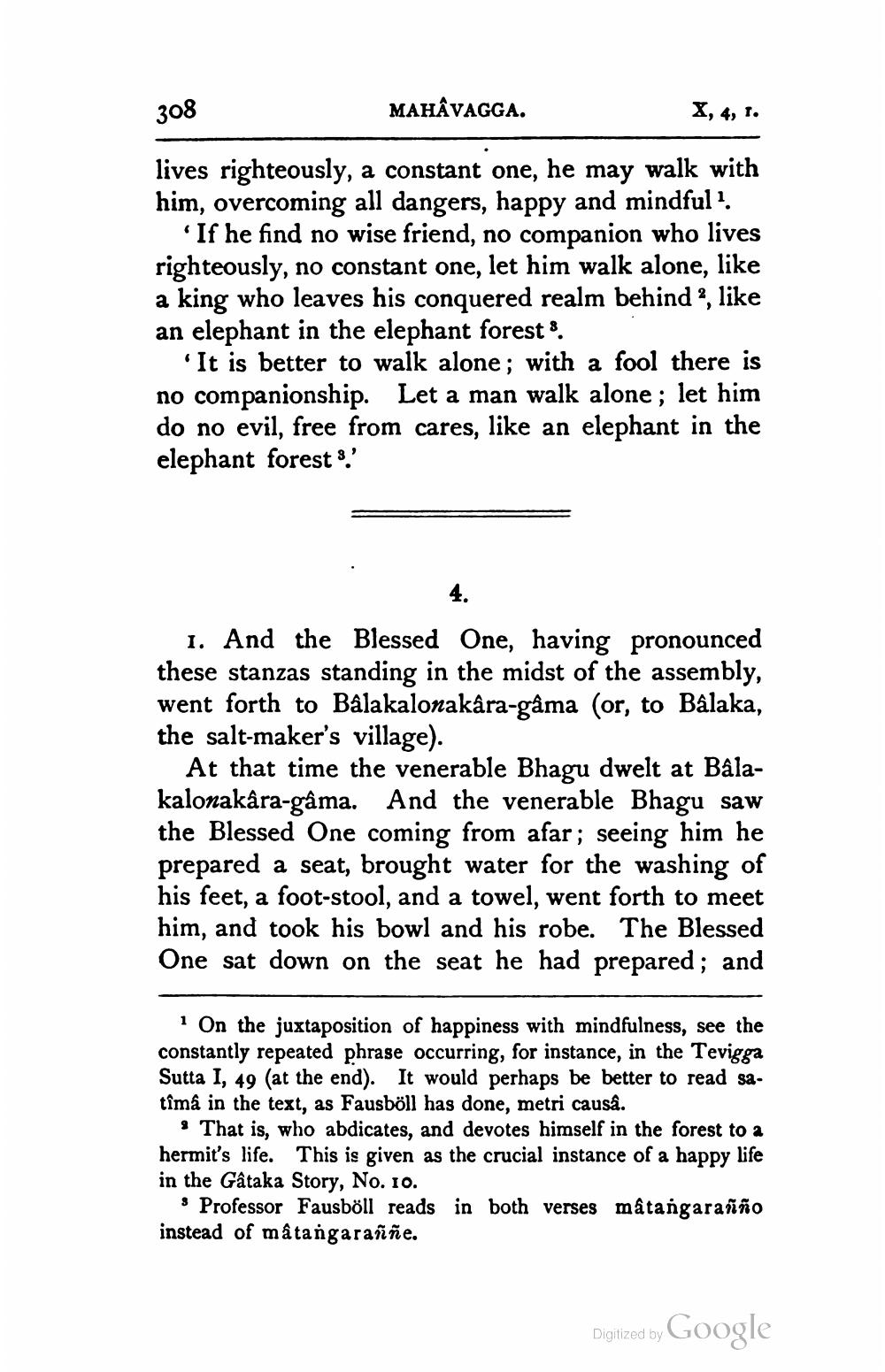________________
308
MAHÂVAGGA.
X, 4, 1.
lives righteously, a constant one, he may walk with him, overcoming all dangers, happy and mindful?
'If he find no wise friend, no companion who lives righteously, no constant one, let him walk alone, like a king who leaves his conquered realm behind ?, like an elephant in the elephant forest 8.
It is better to walk alone; with a fool there is no companionship. Let a man walk alone ; let him do no evil, free from cares, like an elephant in the elephant forest !
1. And the Blessed One, having pronounced these stanzas standing in the midst of the assembly, went forth to Balakalonakâra-gâma (or, to Balaka, the salt-maker's village).
At that time the venerable Bhagu dwelt at Balakalonakâra-gama. And the venerable Bhagu saw the Blessed One coming from afar; seeing him he prepared a seat, brought water for the washing of his feet, a foot-stool, and a towel, went forth to meet him, and took his bowl and his robe. The Blessed One sat down on the seat he had prepared; and
1 On the juxtaposition of happiness with mindfulness, see the constantly repeated phrase occurring, for instance, in the Tevigga Sutta I, 49 (at the end). It would perhaps be better to read satîmâ in the text, as Fausböll has done, metri causa.
9 That is, who abdicates, and devotes himself in the forest to a hermit's life. This is given as the crucial instance of a happy life in the Gâtaka Story, No. 10.
Professor Fausböll reads in both verses mâtangaranno instead of matangaraññe.
Digitized by
Digitized by Google




